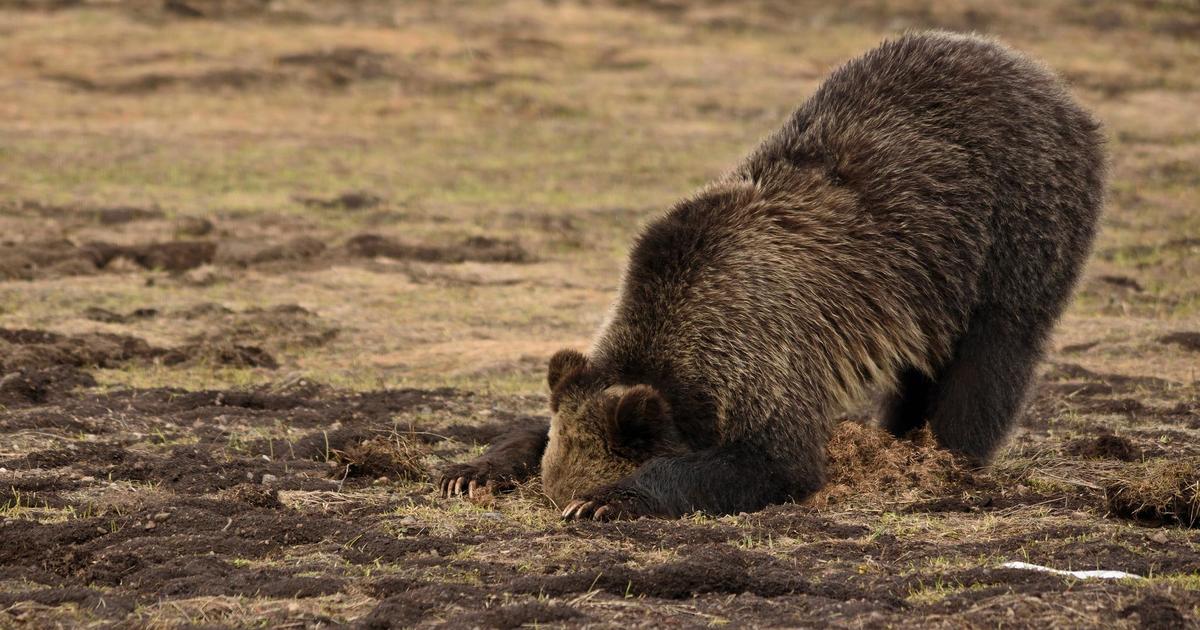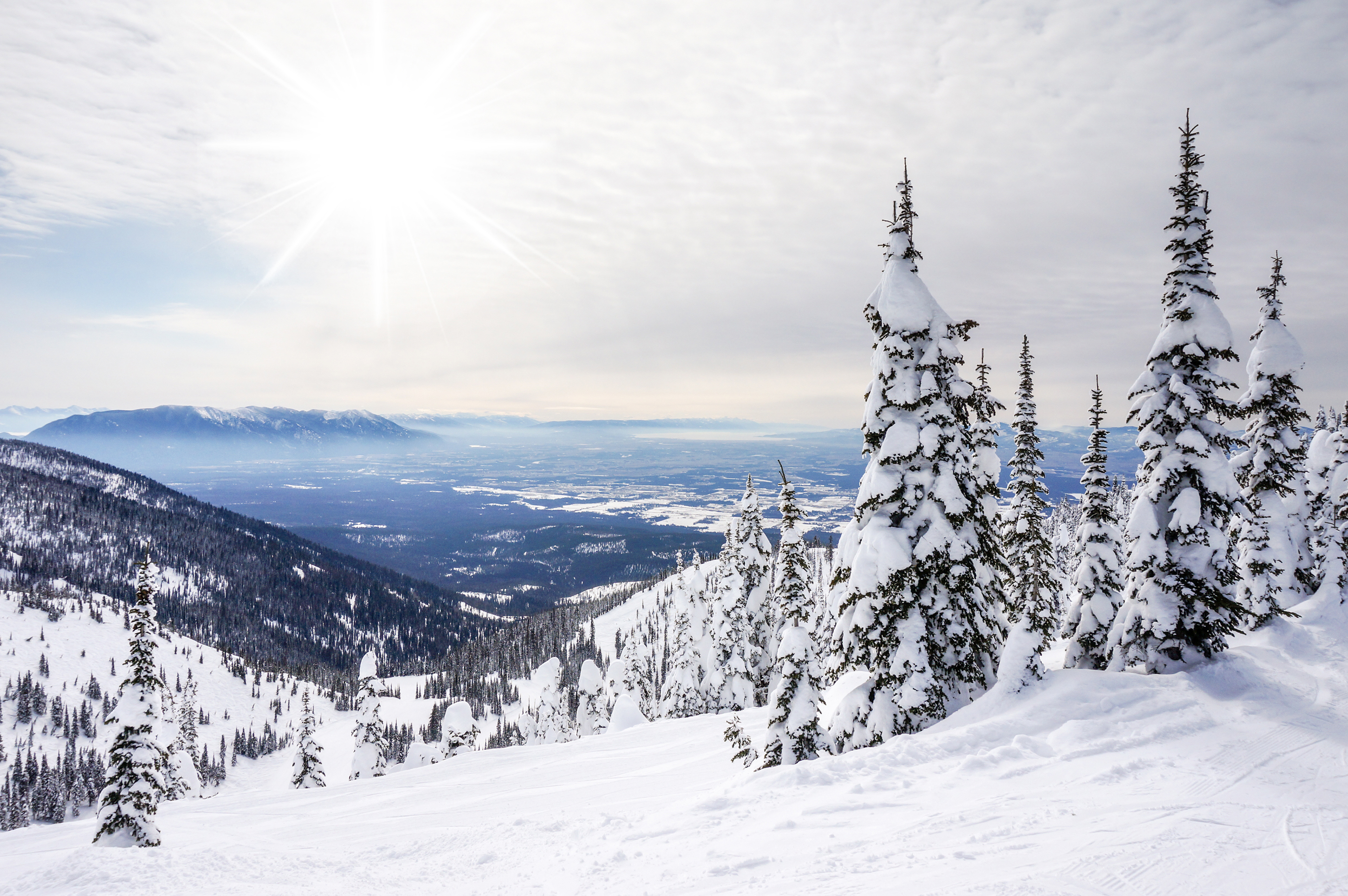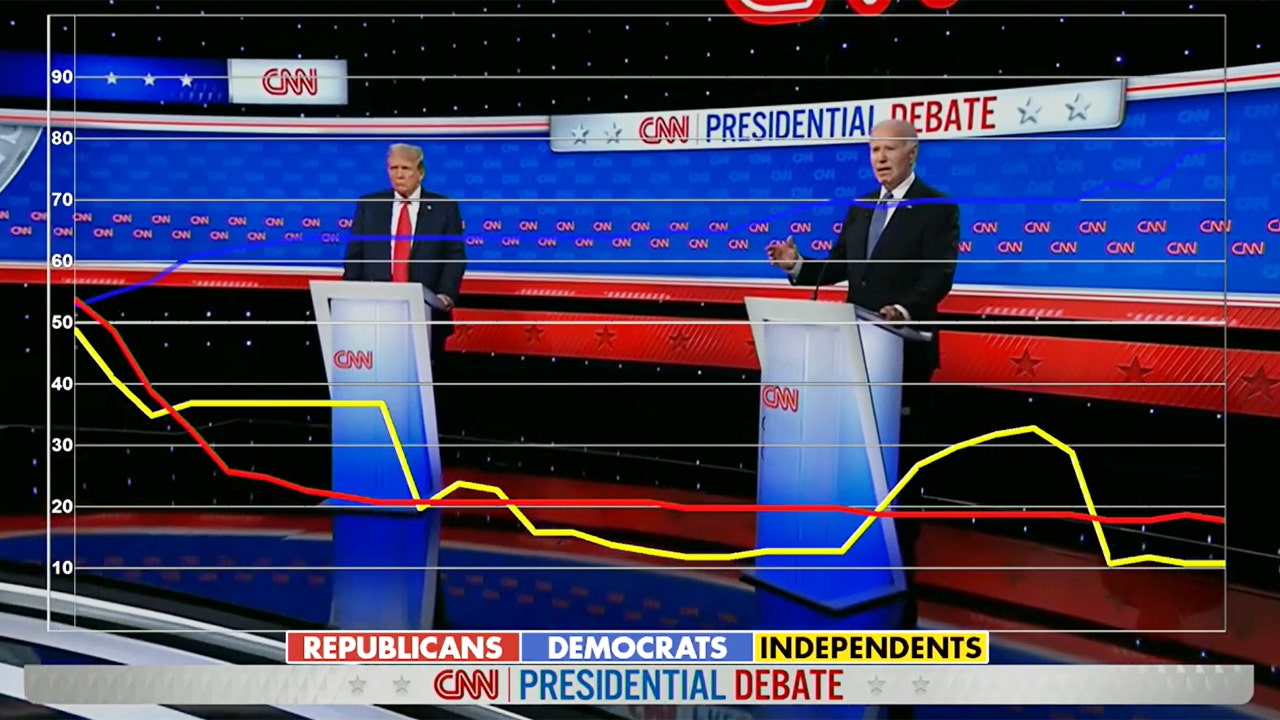Montana
Grizzly bear and her cub euthanized after

Two grizzly bears — a mother and a male cub — were captured and euthanized in Montana after “several conflicts with people,” wildlife authorities said. The bears repeatedly broke into cabins, garages, outdoor freezers, unsecured garbage and a trailer in search of food, according to the the Montana Department of Fish, Wildlife and Parks.
The department said in a news release that the decision to euthanize both animals followed “numerous reports” of instances where they damaged properties in pursuit of human food, even after officials attempted to relocate the 6-year-old mother and cub from a populated area back to the wild.
Initial reports placed the two grizzly bears in the Fortine area of Lincoln County, in northwestern Montana, where they were linked to a number of reported break-ins to unsecured garbage in early August. Bear specialists then moved the mother and cub to a forested area near Frozen Lake and Tuchuck Mountain along the Canadian border.
But the bears proceeded to travel about 35 miles south, to the northern fork of the Flathead River, where they “began seeking food sources by breaking into cabins, garages, outdoor freezers, and a trailer,” officials said, and the two were captured.
Because reports and video footage indicated that the mother and cub “were severely food conditioned and habituated to people,” the animals were euthanized according to guidelines set by the Interagency Grizzly Bear Committee, an organization that works with state and local authorities in parts of the western United States to manage grizzly bear populations. The U.S. Fish and Wildlife Service was also consulted.
“Food-conditioned and habituated bears are those that have sought and obtained unnatural foods, destroyed property, or displayed aggressive, non-defensive behavior towards humans,” the Montana wildlife department said, noting that “hazing and aversive conditioning” are usually unsuccessful in attempting to reverse that kind of behavior. Bears that are food-conditioned and habituated have grown to be too comfortable around people after eating unnatural or explicitly human food. They can no longer be relocated because of the potential threats they pose to human safety.
Earlier this month, officials closed part of a national park in southwestern Montana after a hunter was severely mauled by a grizzly bear. And on Sept. 2, authorities killed another grizzly after it broke into a house near West Yellowstone. That grizzly had fatally mauled a woman on a forest trail in July, and also attacked a person in Idaho three years ago.

Montana
Sheehy, PERC and the future of public lands conservation in Montana

A great recent article by Chris D’Angelo reports on the connection between Tim Sheehy, the Republican challenging Jon Tester for his senate seat, and PERC, the Bozeman-based Property and Environment Research Center that promotes what it calls “free market environmentalism.”
While Montanans might wonder about Sheehy’s background and policy positions given the shifting sands in his explanations, the fact that he was on the board of PERC is not in question — despite his failure to disclose that fact as required by Senate rules which his campaign says is an “omission” that’s being “amended.”
For those who have long been in the conservation, environmental, and public lands policy arena, PERC is a very well-known entity. As noted on its IRS 990 non-profit reporting form, the center is “dedicated to advancing conservation through markets, incentives, property rights and partnerships” which “applies economic thinking to environmental problems.”
But to put it somewhat more simply, PERC believes that private land ownership results in better conservation of those lands under the theory — and it is a disputable theory — that if you own the land and resources, you take better care of it due to its investment value. This has long been their across the board approach to land, water, endangered species and resource extraction.
If one wanted to dispute that theory, it certainly wouldn’t be difficult to do, particularly in Montana where checking the list of Superfund sites left behind by private industries and owners bears indisputable evidence of the myth that private ownership means better conservation of those resources.
In fact, the theory falls on its face since, when “using economic thinking” the all-too-often result is to exploit the resources to maximize profit as quickly as possible. And again, this example is applicable across a wide spectrum of resources. In Montana, that can mean anything from degrading rangeland by putting more livestock on it than it can sustain to, as in Plum Creek’s sad history, leaving behind stumpfields filled with noxious weeds on their vast private — once public — land holdings.
None of this is particularly a mystery, yet PERC has sucked down enormous amounts of funding from anti-conservation sources for more than four decades as it tries mightily to put lipstick on the pig of the all-too-obvious results of runaway private lands resource extraction.
Running one of the most high-stakes senate campaigns in the nation, however, produces a lot of tap-dancing around the truth in an effort to convince voters that you’re for whatever position will garner the most votes come Election Day.
In that regard, both Sheehy and PERC are scuttling sideways in their positions. Given the overwhelming support for “keeping public lands in public hands” in Montana, PERC now claims it “firmly believes that public lands should stay in public hands. We do not advocate for nor support privatization or divestiture.”
Funny that, given its previous and very long-held position that private ownership of lands and waters is the key to conservation. Likewise, Sheehy’s position, “that “public lands must stay in public hands” is completely the opposite from the one he held only a year ago, and parrots PERC not only in its verbiage, but in its realization of which way public sentiment and the electoral winds are blowing.
Since what’s at stake is nothing less than the future of public lands in the Big Sky State, it behooves us to demand specific policy positions in writing from all candidates for public office — including the race for Montana’s Senate seat.
Montana
Couple walking across the U.S. reach Montana

WHITE SULPHUR SPRINGS — A couple from Missouri have a goal to walk through every state in the lower 48.
Paige and Torin – known by their social media handle “Walking America Couple” – are in leg three of a five-leg, cross-country journey.
They’ve already traversed through 21 states, and on Thursday, their journey brought them to just outside White Sulphur Springs.
“Even out here in the more rural open space, we still make a lot of friends on the side of the road. People often stop and ask what we’re doing, or stop to see if we need water or food,” says Paige.
Each leg takes the couple roughly six months to one year, though they take short breaks in-between. They’re also completing the entire journey with their dog Jak.
“I think he loves the adventure more than we do,” Paige adds.
Through rain, shine, snow, and severe weather warnings, the couple have not been deterred, their purpose and mission propelling them.
“We would like to set the example that you can find contentment under almost any circumstance,” says Torin. “I started out the journey an incredibly cynical person, and it was through these repeated interactions of kindness with people that I had otherwise written off in the past, that my perspective began to change dramatically,” he adds.
Now, their journey is helping to spread the same happiness they’ve discovered to those they encounter on their journeys.
“We hope to be the example that we’re, as humans, all more malleable than we think,” says Paige.
For more information, click here to visit their website.
Montana
Montana lawmakers looking at possible future marijuana dispensary regulations

HELENA — Since the launch of Montana’s adult-use recreational marijuana system in 2022, the state has put limits on who can enter the market. Now, state lawmakers are looking at possibly extending the limits, but in a much different form.
Earlier this month, the Montana Legislature’s Economic Affairs Interim Committee held a preliminary discussion on several marijuana-related bills that could be proposed for the 2025 session. One would freeze the number of marijuana dispensaries and other facilities for two years.
Since the start of legal sales, Montana has had a moratorium, allowing only providers who had been licensed in the state’s medical marijuana system to join the recreational market. It was initially set to expire June 30, 2023, but the Legislature voted last year to extend it two more years.
While the number of licensees was limited, those providers were allowed to open additional “licensed premises,” including dispensaries. The proposed legislation – still in a very early form and subject to change – would prevent any business from adding a new licensed premise between July 1, 2025, and June 30, 2027.
“This time, we’re talking about a freeze on all cannabis-related business location licensing, so no new growers, no new kitchens, no new storage facilities, no new dispensaries – they’re the part the public are really going to notice,” said Pepper Petersen, president and CEO of the Montana Cannabis Guild.
The committee referred to the proposal as an extension of the moratorium, but marijuana industry representatives said it’s essentially an entirely new policy, because it would remove the requirement that licensees be former medical providers. That would allow licensees to sell or transfer their businesses to new owners who haven’t previously been in the system.
Petersen said people in the industry understand that many Montanans feel there are enough – or too many – dispensaries in the state. He believes local governments should be taking more active steps to limit the growth of dispensaries through zoning or other regulations.
“We’ve suggested to local governments for two years or more now that they put a number of restrictions on when, where and how dispensaries can open,” he said.
Local governments like Cascade County have looked at ways to regulate marijuana businesses. Next month, the city of Missoula is set to hold a public hearing on a proposal to pause issuing business licenses for new dispensaries.
“When Missoula, Montana, one of the most liberal cities in the state – one of the most marijuana-friendly cities in the country – has said we’ve got too many dispensaries, that reverberates through the state Legislature,” Petersen said.
During the committee meeting, lawmakers also talked about putting together a bill draft to clarify what authority local governments have to put regulations on marijuana businesses. In addition, they looked at a “cleanup” bill to make some technical changes to marijuana laws, as well as a proposed resolution to support the federal SAFER Banking Act, which would allow legal marijuana businesses to access banking services. The committee is set to take a closer look at all of the proposals, including potential amendments, at a meeting in August.
-

 News1 week ago
News1 week agoNYC pastor is sentenced to 9 years for fraud, including taking a single mom's $90,000
-

 News1 week ago
News1 week agoRead the Ruling by the Virginia Court of Appeals
-

 News1 week ago
News1 week agoTracking a Single Day at the National Domestic Violence Hotline
-

 World1 week ago
World1 week agoOrbán ally-turned-rival joins EPP group in European Parliament
-

 News1 week ago
News1 week agoSupreme Court upholds law barring domestic abusers from owning guns in major Second Amendment ruling | CNN Politics
-

 Politics1 week ago
Politics1 week agoTrump classified docs judge to weigh alleged 'unlawful' appointment of Special Counsel Jack Smith
-

 Politics1 week ago
Politics1 week agoSupreme Court upholds federal gun ban for those under domestic violence restraining orders
-

 Fitness1 week ago
Fitness1 week agoWhat's the Least Amount of Exercise I Can Get Away With?











/cdn.vox-cdn.com/uploads/chorus_asset/file/25301215/STK463_SCOTUS_B.jpg)









